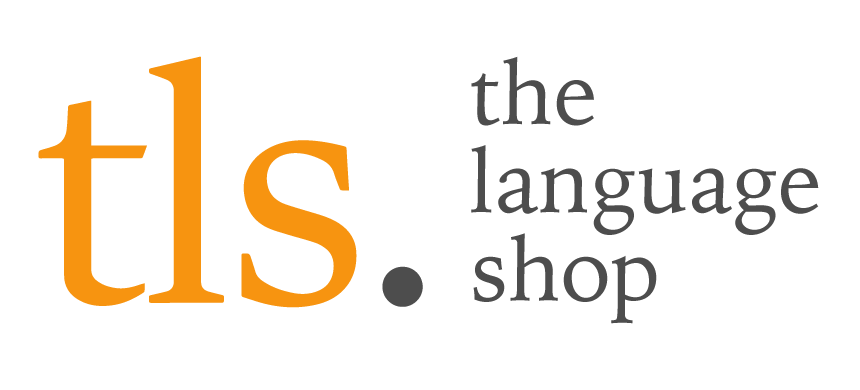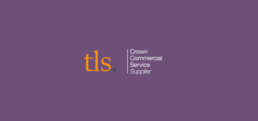language fact file: Nepali
Nepali is spoken as a native language in: Nepal, Bhutan, India
Number of native speakers: 19 million
Learn some: ‘Namaste’ is probably quite a familiar word for lots of people, and it is just used to mean ‘hello’. If you would like to get someone’s attention, it’s ‘maaf garnuhos’.
Fast facts:
Nepal is a very diverse country with a variety of languages and dialects. While Nepali is often a shared second language, uniting Nepalis who have different mother tongues, some argue that, with more than 50% of the population unable to speak it, Nepali should not be considered a national language.
Nepali is a tonal language, which means that a word’s pitch varies its meaning. It also has 12 vowels and 36 consonants (compared to English’s 5 vowels and 21 consonants)!
There are three distinct geographical divisions of the Nepali language: the eastern, the western and the focal. In addition to this, there is a dialect that is spoken by the upper classes, which has its own vocabulary and honorific system. This is increasingly being adopted by the educated middle class and newly wealthy.
The linguist’s story - June '25
Every month, we get to know a bit more about one of our linguists. This month we meet Rita Gurung, an interpreter working in Nepali.
Tell us about the work you do for TLS.
I am a Nepali interpreter with almost 12 years of professional interpreting experience in the UK. At TLS I do face to face, telephone and video interpreting.
What's been your favourite project at TLS?
Video interpreting has been my favourite project with TLS. TLS uses video calls for many of their NHS bookings. I find it an efficient way to work because it creates a similar face to face environment for both the clients and interpreters. In addition, it increases my availability as an interpreter so I can help many people in the community from the comfort and safety of my home.
What has been your biggest challenge?
The biggest challenge for me is not having the time to take all the bookings that are offered, I would take more on if I could!
Can you tell us about a time your work has made a difference to someone’s life?
When it comes to making a difference to someone’s life, I truly believe that I am the one on the receiving end. The sense of joy and reward I feel each time I have helped people communicate between the two different languages, Nepali and English, is immense. What seems ordinary externally is in fact so complex internally. Different spoken languages can be a barrier of communication between people. As an interpreter I get the opportunity to break that barrier each time I turn up for a job so the people in need can be helped.
Tell us something interesting about you.
I was born in Hong Kong in a Nepali household and grew up speaking Nepali since birth, while learning English in school. I remember using both my mother tongue, which is Nepali, and English since my primary school years. Growing up, not only was I a speaker of two languages but I was also my mother’s interpreter by default, because my mother did not speak English and many in our community only spoke English. Translating letters in English, accompanying her for shopping, hospital appointments, attending school meetings etc were also my “extracurricular activities” outside of school. With maturity, proper education and expertise in the field of interpreting, coupled with ongoing day to day life and work experience, I have gained so much from my vocation I cannot be thankful enough. I am grateful now that I am with TLS and I look forward to continuing to work in partnership with them.
New TLS partnership helps to provide mental health support for migrants
We are delighted to announce a new partnership with charity The Magic Stork.
Founded by Chartered Psychologist Dr Valeria Giannuzzi, The Magic Stork offers culturally sensitive mental health support to people who are migrants of any kind: “students, families reuniting, seasonal workers, asylum seekers and refugees, expats…”
Through the partnership, TLS will provide linguists to the charity at a subsidised cost, allowing The Magic Stork to offer more support to more people.
Dr Giannuzzi said: "I came across TLS while supporting an Albanian client who understood some English but couldn’t speak it. Being able to just call a number, choose a language, and have a professional interpreter ready to go, felt like having a trusted teammate in my corner, a calm and reliable presence on the other end.
“For a small organisation like ours, this kind of support is invaluable. It means we can focus on reaching more people without constantly searching for interpreters or volunteers. Working on the frontline, having strong partners by your side is what makes our mission not only possible, but more enjoyable and impactful. The Language Shop shares the same vision with us, and it helps us build the kind of bridges our communities need."
Find out more about The Magic Stork’s brilliant work here.
TLS a Crown Commercial Service supplier
TLS is delighted to announce that we have been appointed as a supplier on Crown Commercial Service’s (CCS) new Language Services Framework – RM6302. A trusted route for the procurement of high quality and cost-effective interpreting and translation services.
Crown Commercial Service supports the public sector to achieve maximum commercial value when procuring goods and services. In 2022/23, CCS helped the public sector to achieve commercial benefits equal to £3.8 billion - supporting world-class public services that offer best value for taxpayers.
TLS will now be able to serve a wide variety of public sector bodies with our high calibre linguists and excellent customer support.
TLS to supply North East London ICB area pharmacies
We are delighted to announce that through our partnership with North-East London Integrated Care Board (ICB), TLS is now the approved language services supplier to all pharmacies in its area.
As pharmacies take on an increased role in care provision to relieve pressure on GP surgeries, there is a corresponding increased need to offer communication support for patients. That is where TLS will step in, supplying interpreters to cover spoken language communication needs.
The area includes more than 360 pharmacies, all of which can now benefit from the same high-quality services and competitive rates as the ICB itself.
Important dates for your diary - June
4-9 (dependent on moon sighting), Hajj, Islam
Hajj is the Muslim pilgrimage to Mecca in Saudi Arabia. It always takes place during the 12th month of the Islamic year, Dhu’al-Hijjah. Every practising Muslim is expected to make the journey at least once, as long as they are able. Once at the Masjid al-Haram, the Great Mosque of Mecca, pilgrims must perform a series of rituals. The pilgrimage is physically and emotionally demanding and a chance to cleanse oneself spiritually.
18, Autistic Pride Day
Autistic Pride Day is held annually on 18 June. The day aims to bring together autistic people and celebrate their unique identities. It promotes awareness and understanding of autism and other forms of neurodiversity as ways of being, rather than conditions that need to be cured. Originally based on the gay Pride model, it uses the rainbow infinity symbol as its logo. Organisers make resources available closer to the day so that anyone can get involved, hosting an event or celebration to mark it. Go to www.autisticprideday.org for more information.
June’s dates at a glance
Religious/Cultural
2-3 – Shavuot, Judaism
5-9 – Hajj, Islam
6 – Waqf Al Arafa, Islam
7 – Saturday of Souls, Orthodox Christian
7-10 – Eid Al-Adha, Islam
8 – Pentecost, Christian
12 – Guru Hargobind Jayanti, Sikh
15 – Eid Al-Ghadir, Islam
15 – Trinity Sunday, Christian
16 – The Apostles’ Fast begins, Orthodox Christian
16 – Martyrdom of Guru Arjan Dev, Sikh
19 – The Feast of Corpus Christi, Catholic Christian
20 – Litha, Wicca and Pagan
24 – Nativity of Saint John The Baptist, Christian
26 – Islamic New Year, Islam
27 – Feast of The Sacred Heart of Jesus, Catholic Christian
29 – Feast of Saints Peter and Paul, Christian
Awareness and Events
4 – International Day of Innocent Children Victims of Aggression
8 – Race Unity Day
9-15 – Men’s Health Week
12 – World Day Against Child Labour
14 – Global Wellness Day
15 – World Elder Abuse Awareness Day
15 – Father’s Day
15-21 – Refugee Week
18 – Autistic Pride Day
20 – World Refugee Day
21 – Summer Solstice
22 – UK Windrush Day
23-27 – School Diversity Week
Language Fact File - Ukrainian
Ukrainian is spoken as a native language in: Ukraine
Number of native speakers: 33 million
Learn some: Greet someone at any time of day with the casual ‘pryvit’, which means hello or hi. If you want to go one further and ask how they are, it’s ‘yak spravy?’
Fast facts:
It’s easy to make your writing more interesting in Ukrainian, as there are so many synonyms – words that have approximately the same meaning. Even a very specific word like ‘horizon’ has 12 synonyms!
Ukrainian is a very old language, though exactly how old is the subject of debate. It evolved from Old East Slavic, which diverged into several modern Eastern European languages.
Ukrainian is known for its widespread use of diminutive forms (making the subject little, eg the diminutive of ‘book’ in English is ‘booklet’), which is made by changing the word ending. This is often applied to names to express affection, eg Oksana would be Oksanchik or Oksanochka. Like Spanish, Ukrainian uses these a lot!
The linguist's story - May '25
Every month, we get to know a bit more about one of our linguists. This month we meet Valeriia Davies an interpreter working in Ukrainian and Russian.
Tell us about the work you do for TLS.
In my role with TLS, I mostly complete bookings via our on-demand telephone service and pre-booked video calls.
What has been your biggest challenge?
One of the biggest challenges I faced was during a call where I had to interpret the news that a patient from Ukraine — a beloved family member – had just passed away in a UK hospital. In that moment, the greatest difficulty was balancing the need to stay professionally accurate while also being sensitive to the deep emotional pain the family was experiencing.
I had to deliver devastating news in a way that was clear, respectful and compassionate, even though my instinct as a human being was to comfort them. I also had to manage my own emotions to remain professional for both the medical team and the family, ensuring that nothing was lost in translation at such a critical time. It was a reminder that as interpreters, we are not just conveying words — we are carrying emotions, and we must do so with great care.
Can you tell us about a time your work has made a difference to someone’s life?
Every time I hear “thank you” from the clients or service users, it makes my day.
One experience that stands out is when I interpreted for a Ukrainian patient during an emergency call where the client was experiencing signs of a stroke. The client spoke very limited English and was extremely frightened. I worked closely with the medical team, ensuring that every symptom and response was accurately and immediately communicated. Because time is critical in stroke cases, being able to quickly and clearly interpret both the patient’s words and the medical team's questions helped speed up diagnosis and treatment. The doctors later told me that our rapid communication helped them administer life-saving care in the crucial window. It was an emotionally exhausting call for me, but at the same time I felt relieved that I helped a lot to save this patient’s life.
One of the other most impactful moments in my work with TLS was during a call where I interpreted for a client in severe emotional distress who was experiencing suicidal thoughts. They spoke no English, just Ukrainian, and it was clear they felt isolated and overwhelmed. Throughout the call, I focused not only on translating words accurately but also on conveying the emotion behind them and making sure the mental health crisis team could fully understand the urgency and pain the caller was expressing.
At the same time, I stayed calm and steady to help the caller feel heard and supported. Knowing that my role helped bridge the gap between someone in crisis and the help they needed is something I will always remember. Moments like that remind me how vital clear, compassionate interpretation can be — not just for understanding, but for saving lives.
Tell us something interesting about you
Originally from Kharkiv, Ukraine. I’m very passionate about linguistics, fluent in 5 languages, learning 2 new languages and working on my PHD. I'm very lucky to say that I love my job being a self-employed interpreter/translator and working for one of the leading UK translating agencies, TLS. I’m blessed with the opportunity to be able to help people daily and make a difference in other people’s lives.
Important dates for your diary - May
1, Beltane, Wicca and Pagan
Beltane is the ancient Celtic festival marking the beginning of summer and the rebirth of life – an important event in the agrarian year! The first mention of it is in a glossary thought to have been written by a bishop named Cormac, who died in 908 AD. This described cattle being led between two bonfires, to protect them from disease before they were sent out to pasture. This tradition was still being observed in Ireland as late as the 19th century, and today Beltane is still celebrated with the lighting of fires.
5-11, Deaf Awareness Week
Deaf Awareness Week was created by the UK Council on Deafness to make deafness and the barriers Deaf and hard of hearing people face more visible to hearing people. The theme for Deaf Awareness Week 2025 is Beyond Silence, encouraging better understanding of diverse communication methods, such as sign language, lip reading and assistive technology. It also aims to raise awareness of the barriers faced by Deaf and hard of hearing people in the UK.
May’s dates at a glance:
Religious/cultural
1 – Beltane, Wicca and Pagan
1 – Yom Ha’Atzmaut, Judaism
1 – Twelfth Day of Ridvan, Baha’i
3 – Feast of Saints Philip and James, Catholic Christian
11 – Guru Amar Das Jayanti, Sikh
12 – Vesak, Buddhist
14 – Feast of Saint Matthias, Catholic Christian
16 – Lag Baomer, Judaism
23 – Declaration of the Báb, Baha’i
26 – Yom Yerushalayim, Judaism
28 – Ascension of Baha‘U’llah, Baha’i
29 – Feast of the Ascension, Orthodox Christian
31 – Visitation of the Blessed Virgin Mary, Catholic Christian
Awareness and Events
1 – International Workers’ Day
4 – International Family Equality Day
5-11 – Deaf Awareness Week
8 – World Red Cross and Red Crescent Day
12-18 – Coeliac UK Awareness Week
Language fact file - Dutch
Language fact file: Dutch
Dutch is spoken as a native language in: The Netherlands, northern Belgium and Suriname.
Number of native speakers: 25 million
Learn some: English is very widely spoken in the Netherlands, but if you want to be polite, you can ask ‘spreek je Engels?’, which means ‘do you speak English?’
Fast facts:
Dutch is said to be halfway between German and English, making it easy - in theory - for English speakers to learn. However, pronunciation is notoriously difficult!
Like German, Dutch uses a lot of compound nouns – words that are created by lumping lots of nouns together! The longest one in the official Dutch dictionary is said to be meervoudigepersoonlijkheidsstoornissen, which means multiple personality disorders. However in 2007, a Dutch TV show called Lingo held a competition to see who could come up with the longest word and the winning entry was kindercarnavalsoptochtvoorbereidingswerkzaamhedencomitéleden, meaning ‘children’s carnival parade preparation work committee members’! Useful.
Dutch people call their language Nederlands and the German language Duits. The words Dutch, Duits and Deutsch (the German word for German) all come from an old Germanic word meaning the language of the people.









